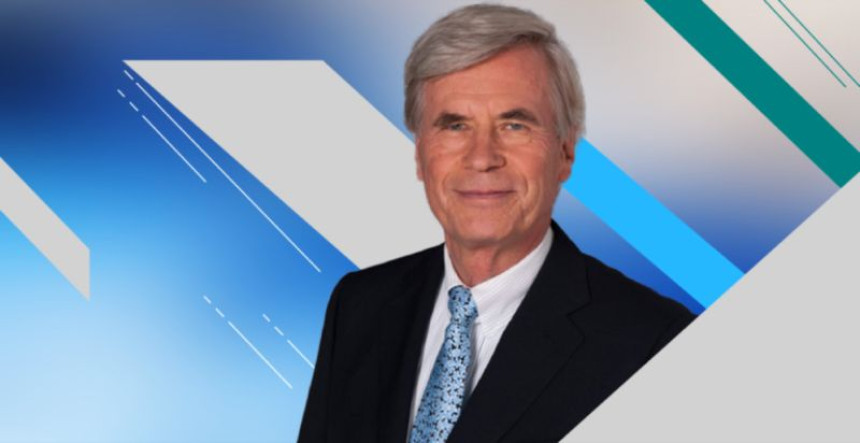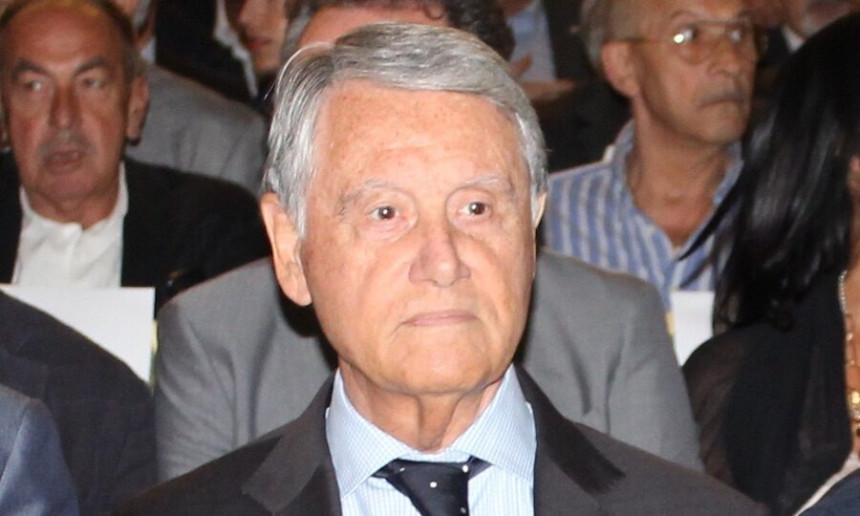
Dieter Schwarz Net Worth and Success Story
Dieter Schwarz was born on September 24, 1939, in Heilbronn, Germany. Growing up in a post-war Germany, Schwarz witnessed significant economic and social changes. His father, Josef Schwarz, was a key influence in his life. Josef co-founded the retail business Lidl & Schwarz KG in 1930, which started as a wholesale fruit company. This early exposure to the world of business laid the groundwork for Dieter’s future endeavors.
The Founding of Lidl & Schwarz KG
Lidl & Schwarz KG initially operated as a wholesale fruit business but expanded into other grocery sectors over time. This diversification was crucial for the company’s survival and growth, particularly during the challenging economic conditions of post-war Germany. The foundation laid by Josef Schwarz provided Dieter with a robust platform to build upon.
Taking Over the Family Business
Dieter Schwarz joined the family business in the 1960s, working alongside his father and learning the intricacies of the retail industry. When Josef Schwarz passed away in 1977, Dieter took over the reins of the company. Recognizing the shifting retail landscape and the rising demand for discount supermarkets, Dieter decided to pivot the company towards this new business model.
The Birth and Growth of Lidl
In 1973, Dieter Schwarz opened the first Lidl store in Ludwigshafen, Germany. The concept was straightforward but revolutionary: a no-frills supermarket that minimized operational costs and passed the savings on to customers. This business model was inspired by the success of Aldi, another German discount supermarket chain.
Expansion Strategy
Dieter Schwarz implemented an aggressive expansion strategy for Lidl. The focus was on rapid growth and market penetration. By the 1980s, Lidl had expanded significantly within Germany. In the 1990s, the company began its international expansion, entering markets across Europe. Today, Lidl operates in over 30 countries with thousands of stores, making it one of the largest retail chains globally.
Operational Efficiency
A critical factor behind Lidl’s success is its operational efficiency. The stores are designed to be compact, with a limited number of stock-keeping units (SKUs), which streamlines inventory management and reduces overhead costs. Lidl also emphasizes private label products, which offer higher margins and help maintain low prices for consumers.
The Expansion of Kaufland
While Lidl was growing rapidly, Dieter Schwarz also focused on expanding Kaufland, a hypermarket chain offering a wider range of products, including non-food items. The first Kaufland store opened in 1984. The chain targeted a different market segment compared to Lidl, focusing on customers who preferred a one-stop shopping experience.
Kaufland’s Growth
Kaufland followed a similar expansion strategy to Lidl, rapidly increasing its presence within Germany before venturing into international markets. Today, Kaufland operates in several European countries and continues to grow, contributing significantly to the overall success of the Schwarz Group.
Leadership and Management Style
Dieter Schwarz is known for his reserved and private nature. Unlike many other billionaires, he has maintained a low public profile, rarely giving interviews or making public appearances. His leadership style is characterized by a focus on efficiency, pragmatism, and long-term planning. Schwarz’s approach to management emphasizes decentralization, giving regional managers significant autonomy to make decisions that best suit their local markets.
Focus on Innovation
Under Dieter Schwarz’s leadership, the Schwarz Group has continuously innovated to stay ahead of competitors. This includes investing in logistics, supply chain management, and technology. The company has developed sophisticated logistics systems to ensure efficient distribution and minimize costs. Additionally, Lidl and Kaufland have embraced digital transformation, incorporating e-commerce and digital marketing strategies to attract and retain customers.

Net Worth and Financial Success
As of 2024, Dieter Schwarz’s net worth is estimated to be around $42 billion, making him one of the richest individuals in the world. His wealth is primarily derived from his ownership stake in the Schwarz Group, which remains a privately held company.
Private Ownership
The Schwarz Group's private ownership has been a significant factor in its success. Unlike publicly traded companies, it does not have to answer to external shareholders, allowing for greater flexibility in decision-making and long-term planning. This has enabled the company to reinvest profits into growth and innovation rather than focusing on short-term returns.
Revenue and Profitability
The Schwarz Group is one of the largest retail companies globally, with annual revenues exceeding €100 billion. Lidl and Kaufland’s profitability stems from their efficient operations, scale, and focus on cost control. The company’s emphasis on private label products and streamlined supply chain also contribute to its robust financial performance.
Philanthropy and Social Responsibility
Despite his immense wealth, Dieter Schwarz is known for his philanthropic efforts, though he prefers to keep them out of the public eye. He established the Dieter Schwarz Foundation, which focuses on education, science, and research. The foundation supports various educational institutions and initiatives aimed at promoting knowledge and innovation.
Educational Initiatives
The Dieter Schwarz Foundation has funded the establishment of several educational institutions, including the Heilbronn University of Applied Sciences and the German Graduate School of Management and Law. These institutions provide high-quality education and research opportunities, contributing to the development of future generations.
Sustainability and Corporate Responsibility
Under Dieter Schwarz’s leadership, the Schwarz Group has also made significant strides in sustainability and corporate responsibility. Both Lidl and Kaufland have implemented various initiatives to reduce their environmental footprint, such as improving energy efficiency, reducing plastic waste, and sourcing products sustainably. The company’s commitment to ethical practices and sustainability reflects Dieter Schwarz’s belief in creating long-term value for society.
Challenges and Controversies
Like any major corporation, the Schwarz Group has faced its share of challenges and controversies. The aggressive expansion strategy has occasionally led to clashes with local businesses and regulatory issues. Additionally, the company has faced criticism over labor practices, particularly concerning wages and working conditions. In response, Lidl and Kaufland have made efforts to improve labor relations and ensure fair treatment of employees.
Competitive Pressures
The retail industry is highly competitive, with constant pressure to innovate and adapt to changing consumer preferences. The rise of e-commerce giants like Amazon has also posed a significant challenge. However, Lidl and Kaufland have responded by enhancing their online presence and integrating digital solutions to improve customer experience.
Legacy and Impact
Dieter Schwarz’s impact on the retail industry is undeniable. He transformed a small, regional wholesale business into a global retail powerhouse. His strategic vision and commitment to operational excellence have set new standards in the discount supermarket sector. Schwarz’s emphasis on efficiency, innovation, and long-term planning has ensured the sustained success of Lidl and Kaufland.
Influence on the Discount Retail Model
The success of Lidl has influenced the discount retail model globally. Many competitors have adopted similar strategies, focusing on cost control, private label products, and efficient operations. Schwarz’s approach has demonstrated that discount retailing can be both profitable and scalable.
Philanthropic Legacy
Through the Dieter Schwarz Foundation, Schwarz has made lasting contributions to education and research. His philanthropic efforts have provided valuable resources and opportunities for future generations, reinforcing the importance of giving back to society.
Conclusion
Dieter Schwarz’s story is one of visionary leadership, relentless pursuit of efficiency, and a commitment to long-term success. From taking over a family business to building one of the largest retail empires in the world, Schwarz’s journey is a testament to the power of strategic thinking and innovation.
With a net worth of around $42 billion, Dieter Schwarz stands as one of the wealthiest individuals globally. Yet, his legacy extends beyond financial success. It encompasses a profound impact on the retail industry, a commitment to sustainable and ethical business practices, and significant philanthropic contributions.
In an increasingly complex and competitive global market, Dieter Schwarz’s principles of efficiency, innovation, and responsibility continue to guide the Schwarz Group. His story serves as an inspiration for entrepreneurs and business leaders worldwide, demonstrating that with vision, dedication, and a focus on long-term value, remarkable success is achievable.





